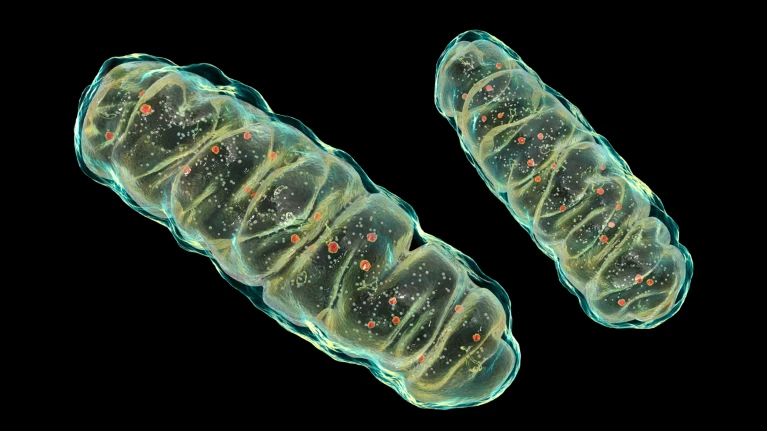Interestingly mtDna has a different coding system for protein.
Mitochondria expel tainted DNA — spurring age-related inflammation
Rather than starting a new post and cluttering the collection (as there are so many posts on Mitochondria)…I figured this thread is a natural fit! This article is paywalled!!
Organelles spit out DNA contaminated with damaging components, leading to the activation of inflammatory enzymes, mouse experiments show.
The cellular batteries known as mitochondria sometimes dump DNA into their surroundings, which can contribute to inflammation during ageing. Now a study in mice reveals why this dumping occurs: mitochondria are expelling ‘tainted’ DNA1.
Scientists found that, in the cells of ageing mice with kidney inflammation, strands of mitochondrial DNA (mtDNA) contained an excess of certain types of nucleotides — molecular building blocks — that can harm DNA. This excess prompted the mitochondria to eject the abnormal fragments of genetic code into the cytosol, a fluid that fills the cell, in which the free-roaming mtDNA kick-started key inflammatory pathways associated with ageing.
The study is exciting because it helps to explain why and how mitochondria throw away their DNA, says Timothy Shutt, a medical geneticist at the University of Calgary in Canada, who focuses on mitochondria. This insight could help researchers to better understand mitochondria’s contribution to inflammageing — the chronic inflammation that occurs as people get older, adds Shutt.
The findings were published 24 September in Nature1.
Out with the rubbish
Mitochondria are energy-producing organelles that have their own genome. When the mtDNA is damaged or disrupted, the mitochondria kick it out, sending it into the cytosol. This can occur when the relative levels of certain nucleotides in the mtDNA become too high or low.
This oversupply problem, which stresses the mitochondria, can be caused by certain drugs and also seems to happen in ageing cells. But exactly how this nucleotide imbalance leads to mtDNA release and inflammageing had been unclear, says study co-author Thomas Langer, a cell biologist at the Max Planck Institute for Biology of Ageing in Cologne, Germany.
Read the full story: Mitochondria expel tainted DNA — spurring age-related inflammation (nature)
